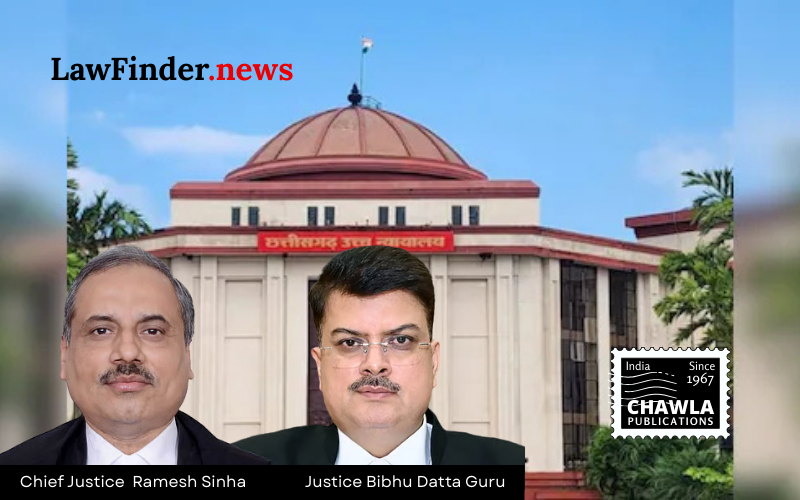Chhattisgarh High Court Grants Parole to Prisoner Despite Heinous Crime Conviction. Court Emphasizes Consideration of Police Opinion in Parole Decisions, Sets Aside Previous Order
In a significant judgment, the Chhattisgarh High Court has granted parole to Yashwant Kumar Sinha, a prisoner convicted of serious offenses, including under Section 363 and Section 376(2)(i) of the Indian Penal Code and the Protection of Children from Sexual Offences Act, 2012. The decision, delivered by a division bench comprising Chief Justice Ramesh Sinha and Justice Bibhu Datta Guru, sets aside a previous order that rejected Sinha's parole application without considering the opinion of the Superintendent of Police.
The case, numbered WPCR No. 448 of 2025, revolved around Sinha's appeal against the rejection of his parole application by the Additional District Magistrate of Balod, Chhattisgarh. The petitioner had been incarcerated since July 2019 and had served over six years in prison, qualifying him for parole under the Chhattisgarh Prisoners Leave Rules, 1989.
The High Court's decision underscores the necessity of including the Superintendent of Police's opinion in parole deliberations. The court referenced the Supreme Court's ruling in Shor v. State of UP, which highlighted that denial of parole solely based on the heinous nature of a crime is insufficient and that the conduct of the prisoner during incarceration should be a factor in parole decisions.
The High Court noted discrepancies in the previous handling of Sinha’s application. The Additional District Magistrate admitted to the oversight of not including the Superintendent of Police's opinion in the parole decision, apologizing for the lapse.
During the proceedings, the Superintendent of Police conducted an inquiry, consulting various stakeholders, including the victim's family and local community members. Concerns were raised about potential risks to public safety and the victim's family if Sinha were released. However, the High Court emphasized the legal precedence that societal concerns alone are inadequate grounds for parole denial without comprehensive examination of the prisoner's conduct and recommendations from law enforcement authorities.
The judgment directs the District Magistrate of Balod to verify the surety submitted by Sinha and grant parole for 14 days, during which Sinha is required to report daily to the District Magistrate, Durg. The court stipulated that Sinha must surrender to the jail authorities upon completion of the parole period.
This ruling is a reaffirmation of the judiciary's commitment to ensuring procedural fairness in parole decisions and highlights the importance of comprehensive evaluation beyond the nature of the crime. The decision is expected to influence future parole applications, emphasizing the balanced consideration of police opinions alongside the prisoner's conduct record.
The Chhattisgarh High Court's intervention in this case serves as a reminder of the legal system's role in safeguarding individual rights while balancing societal concerns.
Yashwant Kumar Sinha v. State of Chhattisgarh, (Chhattisgarh)(DB) : Law Finder Doc Id # 2767791




